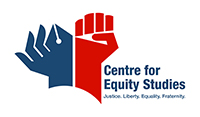Accountability for Mass Violence
Centre for Equity Studies
2012
This report focuses on the access of victims to protection, justice and reparation after communal violence. It argues that the Indian State has failed, in very large measure, to prosecute perpetrators, to account for its own failures, to compensate victims, and to tell citizens about what it did or did not do. It attempts to verify this hypothesis, by excavating the State’s own records, with the understanding that in anatomizing the State’s response to mass violence, the extraction of official records from the conventional determined secrecy of public institutions, and their careful scrutiny and analysis would perhaps add another dimension both to the chronicling of and efforts to prevent the recurrence of such violence.
Report: Social and economic boycott imposed on Muslim survivors of the 2002 Gujarat program
2009
This report explores the forms and consequences of social boycott imposed on Muslim survivors of the 2002 Gujarat pogrom. Given that at the time of writing, there exists no formal documentation of the systematic social and economic boycott that the survivors continue to face (seven years after the carnage in 2002), this report attempts to bring to the forefront the voices and experiences of both survivors and activists, who stand courageously amidst this climate of covert violence that exists today. Using principles of critical ethnography, it draws from interviews with Nyaypathiks of the Nyayagraha campaign, and survivor families, both in villages and in relief colonies, to highlight ways in which the effects of the pogrom continue to affect the social and economic lives of survivors.
Relief Colonies for People Affected by Mass Violence in Gujarat
2008
This report contains the findings of a survey of relief colonies of people affected by mass violence in Gujarat in 2002, undertaken to verify the claims of compliance by the state government, as reported in their affidavit to the Supreme Court. The survey involved visiting all the colonies and conducting focus group discussions with the residents to understand the functioning of the food and employment schemes in the relief colonies.
Harsh Mander and Kiran Nanavati
2006
Post- the carnage in Gujarat in 2002, is bitter evidence of the deliberate failure of the State government to restore even a minimal sense of security and equal citizenship to its brutalised minority residents, that even almost five years after the cataclysmic storm of State enabled mass communal violence, several thousand people have still not returned to their original homes and are losing hope of this even in the future. The State government has stubbornly refused to collect and share data about these survivors of the 2002 carnage, as this would entail both accountability for its unconscionable failures, and responsibility for their just and humane rehabilitation. This report sought to cover all the Relief Colonies in Gujarat, with a focus on availability of basic amenities like water and drainage, education, food security and the implementations of various government schemes.
